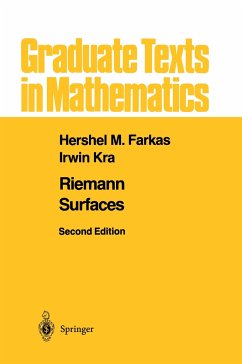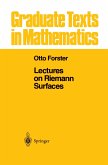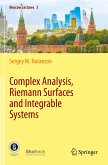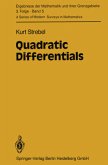This text covers Riemann surface theory from elementary aspects to the fontiers of current research. Open and closed surfaces are treated with emphasis on the compact case. Basic tools are developed to describe the analytic, geometric, and algebraic properties of Riemann surfaces and the Abelian varities associated with these surfaces. Topics covered include existence of meromorphic functions, the Riemann -Roch theorem, Abel's theorem, the Jacobi inversion problem, Noether's theorem, and the Riemann vanishing theorem. A complete treatment of the uniformization of Riemann sufaces via Fuchsian groups, including branched coverings, is presented. Alternate proofs for the most important results are included, showing the diversity of approaches to the subject. For this new edition, the material has been brought up- to-date, and erros have been corrected. The book should be of interest not only to pure mathematicians, but also to physicists interested in string theory and related topics.
It is gratifying to learn that there is new life in an old field that has been at the center of one's existence for over a quarter of a century. It is particularly pleasing that the subject of Riemann surfaces has attracted the attention of a new generation of mathematicians from (newly) adjacent fields (for example, those interested in hyperbolic manifolds and iterations of rational maps) and young physicists who have been convinced (certainly not by mathematicians) that compact Riemann surfaces may play an important role in their (string) universe. We hope that non-mathematicians as well as mathematicians (working in nearby areas to the central topic of this book) will also learn part of this subject for the sheer beauty and elegance of the material (work of Weierstrass, Jacobi, Riemann, Hilbert, Weyl) and as healthy exposure to the way (some) mathematicians write about mathematics. We had intended a more comprehensive revision, including a fuller treatment of moduli problems and theta functions. Pressure of other commitments would have substantially delayed (by years) the appearance of the book we wanted to produce. We have chosen instead to make a few modest additions and to correct a number of errors. We are grateful to the readers who pointed out some of our mistakes in the first edition; the responsibility for the remaining mistakes carried over from the first edition and for any new ones introduced into the second edition remains with the authors. June 1991 Jerusalem H. M.
It is gratifying to learn that there is new life in an old field that has been at the center of one's existence for over a quarter of a century. It is particularly pleasing that the subject of Riemann surfaces has attracted the attention of a new generation of mathematicians from (newly) adjacent fields (for example, those interested in hyperbolic manifolds and iterations of rational maps) and young physicists who have been convinced (certainly not by mathematicians) that compact Riemann surfaces may play an important role in their (string) universe. We hope that non-mathematicians as well as mathematicians (working in nearby areas to the central topic of this book) will also learn part of this subject for the sheer beauty and elegance of the material (work of Weierstrass, Jacobi, Riemann, Hilbert, Weyl) and as healthy exposure to the way (some) mathematicians write about mathematics. We had intended a more comprehensive revision, including a fuller treatment of moduli problems and theta functions. Pressure of other commitments would have substantially delayed (by years) the appearance of the book we wanted to produce. We have chosen instead to make a few modest additions and to correct a number of errors. We are grateful to the readers who pointed out some of our mistakes in the first edition; the responsibility for the remaining mistakes carried over from the first edition and for any new ones introduced into the second edition remains with the authors. June 1991 Jerusalem H. M.









